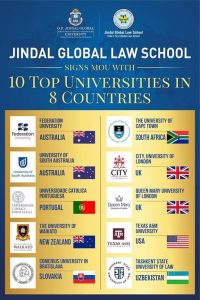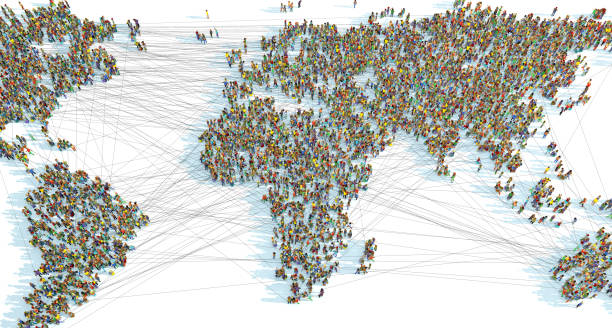Humanities is a term that refers to a wide range of academic disciplines that study the various aspects of human culture, such as literature, history, philosophy, art, religion, and languages. Humanities subjects aim to explore the values, beliefs, ideas, and expressions that shape and reflect the human experience. Humanities education is not focused on training students for a specific profession, but rather on developing their critical thinking, communication, creativity, and empathy skills that can be applied to any field of endeavor.
Meaning & Definitions- What is Humanities?
The word “humanities” comes from the Latin word “humanitas”, which means “human nature” or “human quality”. In ancient times, humanities were the subjects that were considered essential for a free and educated person to learn, such as grammar, rhetoric, poetry, and history. These were contrasted with the subjects that were useful for practical purposes, such as law, medicine, and engineering.
Today, the humanities meaning has expanded to include not only the classical subjects, but also the modern and contemporary subjects that deal with the cultural and social aspects of human life, such as sociology, anthropology, media studies, and gender studies. Humanities stream is interdisciplinary, meaning that it encourages students to explore the connections and interactions between different fields of knowledge.
History & Scope of Humanities
The origin of humanities can be traced back to the ancient civilizations of Greece and Rome, where they were regarded as the core of a liberal arts education for the elite. The concept of humanities was further developed by the Renaissance scholars, who revived the classical learning and culture, and by the Enlightenment thinkers, who emphasized the rational and humanistic values of humanity.
However, humanities degree did not remain static, but rather adapted to the changing needs and interests of society. In the 19th and 20th centuries, humanities expanded to include the new and emerging subjects that reflected the social and cultural transformations of the modern world, such as psychology, sociology, linguistics, and cultural studies. Humanities also responded to the challenges and critiques posed by the scientific and technological developments, such as the rise of positivism, empiricism, and naturalism.
Major Humanities Subjects List
Humanities education covers a wide range of subjects that study the cultural and social aspects of human life. Some of the major humanities subjects are:
- Literature: Literature can help students to appreciate the beauty and power of language, as well as to explore the themes and issues that affect humanity across time and space.
- History: History can help students to understand the causes and consequences of historical phenomena, as well as to appreciate the diversity and complexity of human societies.
- Philosophy: Philosophy can help students to develop their logical and critical thinking skills, as well as to examine their own beliefs and values.
- Art: Art can help students to develop their creative and expressive skills, as well as to enjoy and evaluate the artistic works and traditions of different cultures and periods.
- Religion: Religion can help students to understand the origins and functions of religion, as well as to compare and contrast the religious traditions and experiences of different people and cultures.
Importance of Liberal Arts and Humanities
Liberal arts and humanities are important for several reasons, such as:
- Liberal arts and humanities can help students to become well-rounded and versatile individuals, who can integrate and apply their knowledge and skills across different domains and contexts.
- Liberal arts and humanities can help students to become adaptable and flexible learners, who can cope with and thrive in the changing and uncertain world.
- Liberal arts and humanities can help students to become innovative and original thinkers, who can generate and implement new ideas and solutions for the challenges and opportunities that they encounter.
- Liberal arts and humanities can help students to become engaged and responsible citizens, who can participate and contribute to the democratic and diverse society.
Humanities and Social Sciences
Humanities and social sciences are the academic disciplines that study the various aspects of human culture and society, such as literature, history, philosophy, art, sociology, psychology, economics, and more. Humanities and social sciences can help students to develop a broad and deep knowledge base, as well as critical thinking, communication, creativity, and empathy skills that can be applied to any field of endeavor.
One of the best humanities colleges in India is Jindal School of Liberal Arts and Humanities (JSLH), which is part of O.P. Jindal Global University (JGU). JSLH offers an interdisciplinary liberal arts and humanities course of a global standard. JSLH provides students with the ideal preparation for a life of intellectual action, by merging a diverse range of subjects and approaches, and by encouraging them to explore the connections and interactions between different fields of knowledge.
Conclusion
In conclusion, the significance of humanities with skill subjects in education cannot be overstated. As a broad spectrum of disciplines encompassing literature, history, philosophy, and more, humanities offer students a rich understanding of human culture and society. This interdisciplinary approach fosters critical thinking, creativity, and adaptability, equipping individuals with the skills necessary to navigate an ever-changing world. Whether it’s appreciating the beauty of language in literature, understanding the complexities of historical phenomena, or delving into philosophical inquiry, humanities education empowers students to become well-rounded, versatile, and engaged citizens. Understanding the essence of humanities stream is essential for those seeking to embrace a holistic education that transcends mere career preparation, nurturing individuals who can contribute meaningfully to society.




